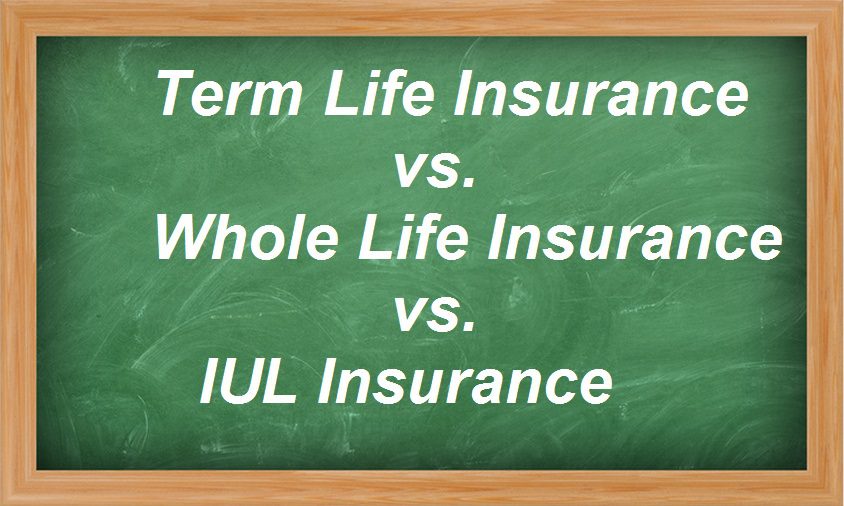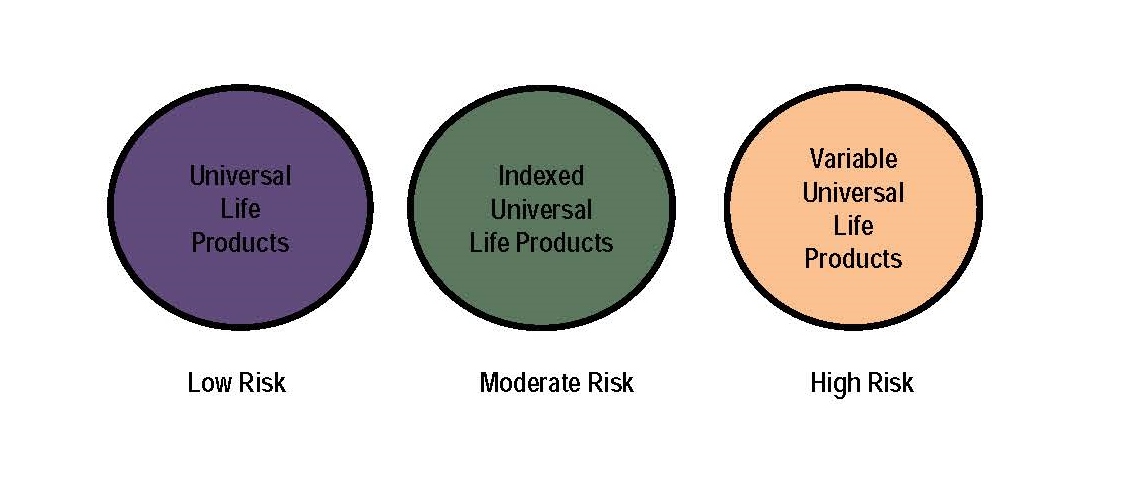All Categories
Featured
Table of Contents
Indexed Universal Life (IUL) insurance policy is a kind of irreversible life insurance policy plan that combines the functions of traditional global life insurance policy with the capacity for money worth development linked to the efficiency of a securities market index, such as the S&P 500 (Guaranteed interest IUL). Like other forms of irreversible life insurance, IUL gives a survivor benefit that pays to the recipients when the insured passes away
Cash money worth build-up: A portion of the premium repayments goes into a money worth account, which earns passion over time. This cash worth can be accessed or borrowed versus throughout the insurance holder's life time. Indexing option: IUL plans provide the opportunity for cash worth growth based upon the performance of a supply market index.
Tax-advantaged Indexed Universal Life
Similar to all life insurance coverage products, there is also a collection of risks that insurance policy holders must be aware of prior to considering this type of plan: Market threat: Among the key threats related to IUL is market threat. Since the cash worth growth is connected to the efficiency of a supply market index, if the index executes poorly, the cash money value may not expand as anticipated.

Sufficient liquidity: Insurance holders need to have a secure monetary situation and be comfortable with the exceptional repayment demands of the IUL policy. IUL enables adaptable premium settlements within certain restrictions, however it's necessary to preserve the plan to ensure it accomplishes its intended purposes. Interest in life insurance policy protection: People who require life insurance policy coverage and a rate of interest in money worth growth might find IUL appealing.
Candidates for IUL must have the ability to recognize the technicians of the policy. IUL might not be the very best alternative for individuals with a high resistance for market threat, those that focus on inexpensive financial investments, or those with more immediate financial needs. Consulting with a qualified monetary consultant who can give personalized assistance is essential before taking into consideration an IUL policy.
All registrants will receive a calendar invitation and link to sign up with the webinar by means of Zoom. Can not make it live? Register anyhow and we'll send you a recording of the presentation the next day.
Long-term Iul Benefits
You can underpay or miss premiums, plus you may have the ability to change your fatality advantage. What makes IUL various is the method the money value is spent. When you take out an indexed universal life insurance policy policy, the insurance provider gives a number of choices to choose a minimum of one index to utilize for all or part of the cash money value account section of your plan and your survivor benefit.
Cash money worth, along with possible growth of that worth through an equity index account. A choice to assign part of the money value to a fixed interest alternative.
Insurance holders can make a decision the portion assigned to the taken care of and indexed accounts. The value of the chosen index is recorded at the start of the month and compared to the worth at the end of the month. If the index boosts throughout the month, interest is included in the money value.
The resulting interest is included to the cash money worth. Some plans determine the index gets as the amount of the adjustments for the duration, while other policies take an average of the daily gains for a month.
What is the most popular Iul Policy plan in 2024?
The price is established by the insurance business and can be anywhere from 25% to greater than 100%. (The insurance firm can also alter the get involved rate over the lifetime of the plan.) As an example, if the gain is 6%, the involvement rate is 50%, and the present money value overall is $10,000, $300 is included in the cash value (6% x 50% x $10,000 = $300).
There are a variety of advantages and disadvantages to consider before buying an IUL policy.: As with basic global life insurance policy, the insurance holder can increase their costs or lower them in times of hardship.: Quantities credited to the cash worth grow tax-deferred. The cash money worth can pay the insurance coverage costs, enabling the insurance policy holder to reduce or stop making out-of-pocket costs settlements.
Who offers flexible Iul Calculator plans?
Numerous IUL policies have a later maturity day than various other kinds of global life plans, with some ending when the insured reaches age 121 or even more. If the insured is still active back then, plans pay the survivor benefit (however not typically the cash value) and the earnings might be taxable.

: Smaller policy face worths don't use much advantage over regular UL insurance policy policies.: If the index goes down, no rate of interest is credited to the cash worth.
With IUL, the objective is to benefit from higher movements in the index.: Due to the fact that the insurer just acquires alternatives in an index, you're not directly bought stocks, so you don't profit when business pay dividends to shareholders.: Insurers fee fees for handling your money, which can drain pipes money worth.
How do I apply for Indexed Universal Life Premium Options?

For many people, no, IUL isn't far better than a 401(k) - IUL in terms of conserving for retirement. Most IULs are best for high-net-worth individuals trying to find ways to decrease their gross income or those that have actually maxed out their other retired life options. For everybody else, a 401(k) is a much better financial investment lorry since it does not carry the high charges and premiums of an IUL, plus there is no cap on the quantity you may earn (unlike with an IUL policy)
While you might not shed any cash in the account if the index decreases, you won't make passion. If the market turns favorable, the incomes on your IUL will certainly not be as high as a typical investment account. The high price of costs and costs makes IULs costly and considerably less inexpensive than term life.
Indexed universal life (IUL) insurance coverage uses money worth plus a survivor benefit. The cash in the money worth account can earn rate of interest via tracking an equity index, and with some frequently alloted to a fixed-rate account. However, Indexed global life plans cap just how much money you can build up (usually at much less than 100%) and they are based upon a perhaps unpredictable equity index.
How does Indexed Universal Life Growth Strategy work?
A 401(k) is a far better choice for that purpose due to the fact that it doesn't carry the high charges and costs of an IUL plan, plus there is no cap on the amount you may earn when spent. Most IUL policies are best for high-net-worth people looking for to lower their taxed earnings. Investopedia does not give tax, investment, or financial solutions and suggestions.
If you're thinking about purchasing an indexed universal life plan, first talk to a monetary expert that can explain the subtleties and offer you a precise photo of the actual capacity of an IUL policy. See to it you comprehend how the insurance provider will certainly calculate your rate of interest, earnings cap, and fees that could be assessed.
Latest Posts
Universal Life Insurance Expires When
Flexibility Of Universal Life
Universal Retirement Protection